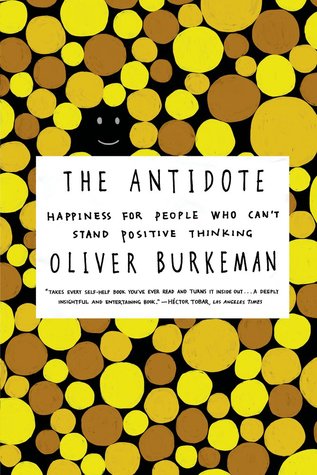
Last week, DZ posted from Oliver Burkeman’s excellent article on time management and the law of unread emails. I just finished up his 2012 book, The Antidote: Happiness for People Who Can’t Stand Positive Thinking, and, boy, good points of connection abound. Trying to get to the bottom of why we have such difficulty doing what we are told to do, or, rather, not doing what we are told not to do, Burkeman uses a study conducted by Daniel Wegner at Harvard’s ‘Mental Control Laboratory.’
When you try not to think of a white bear, you may experience some success in forcing alternative thoughts into your mind. At the same time, though, a metacognitive monitoring process will crank into action, to scan your mind for evidence of whether you are succeeding or failing at the task. And this is where things get perilous, because if you try too hard – or, Wegner’s studies suggest, if you are tired, stressed, depressed, attempting to multi-task, or otherwise suffering from ‘mental load’ – metacognition will frequently go wrong. The mon
itoring process will start to occupy more than its fair share of limelight on the cognitive stage. It will jump to the forefront of consciousness – and suddenly, all you will be able to think about is white bears, and how badly you’re doing at not thinking about them.
Could it be that … our efforts to feel positive seem so frequently to bring about the opposite result? … When experimental subjects are told of an unhappy event, but then instructed to try not to feel sad about it, they end up feeling worse than people who are informed of the event, but given no instructions about how to feel. In another study, when patients who were suffering from panic disorders listened to relaxation tapes, their hearts beat faster than patients who listened to audiobooks with no explicitly ‘relaxing’ content. Bereaved people who make the most effort to avoid feeling grief, research suggests, take the longest to recover from their loss. Our efforts at mental suppression fail in the sexual arena, too: people instructed not to think about sex exhibit greater arousal, as measured by the electrical conductivity of their skin, than those instructed to suppress such thoughts.
He concludes this chapter, entitled “On Trying Too Hard to be Happy,” with the metaphor of a Chinese finger trap. In the case of striving for our own happiness, he writes, “‘doing the presumably sensible thing is counterproductive.’ Following the negative path to happiness is about doing the other thing – the presumably illogical thing – instead.” In other words, try to climb out of that ditch and before long human nature kicks in, handing down a shovel.

COMMENTS
2 responses to “From Oliver Burkeman’s The Antidote”
Leave a Reply













Thank you so much for this. It’s always nice to know it isn’t just me. The most stressful email I ever received was from my doctor and it began, “Don’t be alarmed, but…”
This goes against a message I heard recently but I resonate with this article way more than that message which was about 2 cor 10:5. It just doesn’t help to say do this and you’ll be better off. Somehow it just seems going the opposite direction helps more or that the answer is not where you think it is like being told to do or not do something. I think Smith Wigglesworth had it right. When the devil tried to bother him he said “oh it’s just you” and went back to sleep.